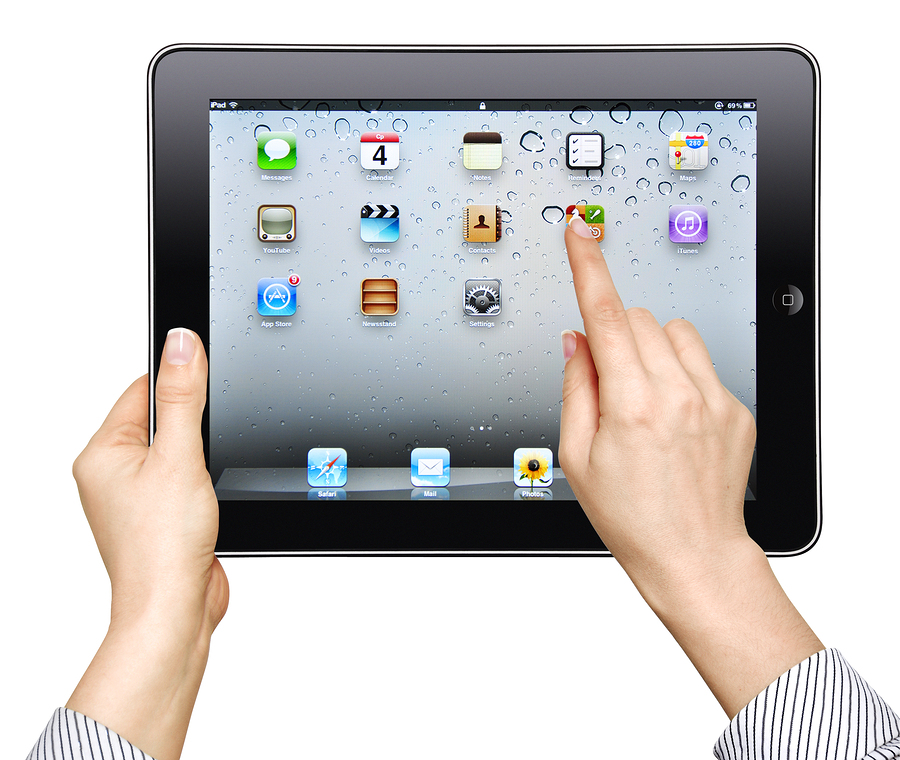How does the iPad measure up in the Trinity classroom?
Trinity College Foundation Studies (TCFS) was one of the first institutions worldwide to pilot the use of iPads in the classroom for teaching and learning in 2010. Four years on, TCFS students Brenda Tang, Nigel Yam, and Louise Xu examine the benefits and disadvantages of the use of this device in the classroom.
Walk into a Trinity College Foundation Studies (TCFS) classroom or lecture theatre and you will likely find students typing away and completing classroom exercises on their iPads.
While this may be new for most, TCFS was one of the first institutions around the world to trial the use of iPads in the classroom. After overwhelming positive feedback from the pilot program, every student is now equipped with an iPad, which has become an integral part of the TCFS syllabus.
However, there are those who ask if there was a need to introduce iPads into the classroom for both teaching and learning.
TCFS Associate Dean (Academic Operations) Glen Jennings told Meld that technology is becoming increasingly important both in the classroom and the workplace.
“Students are growing up with more technology and [there is] a greater need to be experts in the use of technology, so that when they go on to university and their workplaces, they’ll be very familiar with these things,” Mr Jennings said.
During class, TCFS students use their iPads by taking notes, delivering presentations, doing collaborative work and even conducting online research. Many students, when asked, enjoy using the iPad for learning.
The effectiveness of the iPad in the classroom remains a question amongst students, teachers, and parents.
To begin with, there are a large number of benefits that the iPad has brought about to learning, but perhaps the most prominent one is the improved academic results after its introduction. The iPad Pilot Group achieved higher overall average scores and the highest individual scores, according to a report on the pilot project by Trinity College.
Other benefits include access to real-time information on the internet, more innovative and engaging lessons, greater speed of communication between students and teachers, and a greater sense of responsibility instilled in each student in regards to their learning.
TCFS Psychology subject leader Dr Maureen Vincent believes the iPad allows students to take a hands-on approach when it comes to research and learning.
“Now we can give students a task, and they can research the information and investigate the main areas of concern, rather than the traditional method where the teacher would provide the information for them,” she said.
In spite of the advantages, concerns about the integration of iPads into the learning curriculum remain.
Teachers have to deal with the challenge of being unable to control what their students are doing on the iPad. A greater sense of trust is needed to overcome this.
Also, TCFS eLearning Coordinator Jennifer Mitchell says that using iPads means that students write less. As a result, some students have a hard time improving their English as typing is not as effective if students are looking to improve their grasp of the language.
Another major concern is distraction. Students may spend time on irrelevant material such as games, videos, and social media while using the iPad during lessons, and consequently suffer poor academic results.
When asked about this issue, Mr Jennings noted that distraction in the classroom can occur regardless of the presence of technology.
“A mobile device used with good education can be something that really helps promote investigation, experimentation and engagement. If you’re doing something you’re engaged in, then you’ll use the technology wisely and to further what you’re studying,” he said.
We also spoke to various TCFS students and teachers. They share their thoughts on this topic in the video below.
